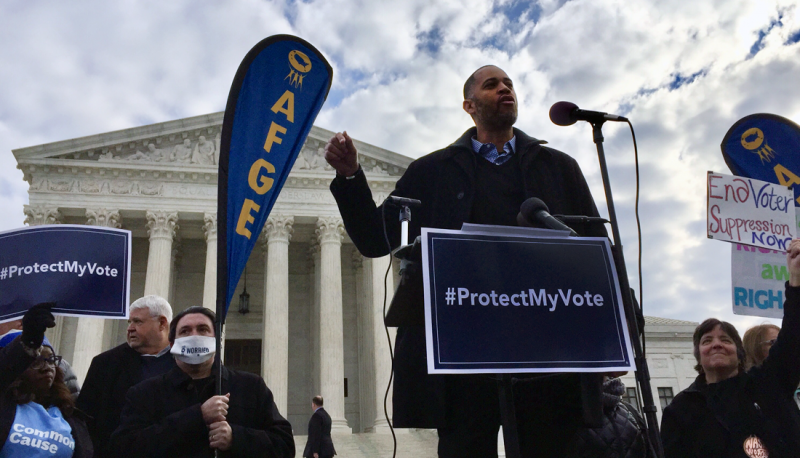The Voting Rights Act of 1965 (VRA), one of the most critical pieces of civil rights legislation in U.S. history, was born out of necessity during one of the darkest periods in our democracy. Although the Constitution protected the right to vote for Black men after the 1870 ratification of the 15th Amendment, many states were able to effectively disenfranchise voters of color through discriminatory practices like poll taxes, literacy tests, and intimidation tactics.
Outrage over such systemic oppression and disenfranchisement reached a tipping point during the civil rights movement, including the Bloody Sunday protest in Selma that left 58 injured and finally spurred Congress to take up the mantel of realizing the 15th Amendment’s promise. The Voting Rights Act was Congress’s attempt to help enact uniform protections for voters in all states, and was lauded widely as the “crown jewel” of the civil rights movement.
Among the many protections established by the VRA, one of the most important was Section 5, which contained special enforcement provisions for states with particularly egregious voter suppression records. In practice, this meant that certain areas would be subject to heightened federal scrutiny, referred to as “preclearance,” before passing any new voting laws. The criteria for determining which states would have to abide by this scrutiny and how new laws would pass the appropriate standards was laid out in a “coverage formula” established by Section 4 of the VRA.
On June 25, 2013, the Supreme Court gutted the Voting Rights Act in a landmark ruling known as Shelby County v. Holder. The majority declared the preclearance formula unconstitutional, essentially nullifying the federal government’s power to enforce the VRA before bad laws go into effect—when it makes the most difference.
In the ruling, the Court majority claimed that the system had worked so well that these protections were no longer needed. In a legendary dissent, Justice Ruth Bader Ginsburg strongly criticized this reasoning, arguing that “throwing out preclearance when it has worked and is continuing to work to stop discriminatory changes is like throwing away your umbrella in a rainstorm because you are not getting wet.” The Court left it up to Congress to establish new criteria for how and when the Justice Department could step in before states could implement new election laws, but the Voting Rights Advancement Act has yet to make it through both chambers. Shelby County would have been devastating under any administration, but especially today, with Trump’s clear hostility toward protecting voting rights, the effects are particularly far-reaching and tragic.
With the sixth anniversary of Shelby County on June 25, many activists and lawmakers are moving to mitigate the worst effects of this decision by renewing their support for the Voting Rights Advancement Act. This bill, sponsored by Rep. Terri Sewell, D-Ala., and Sen. Patrick Leahy, D-Vt., has the potential to restore the VRA preclearance protections and counter some voter suppression tactics that have enabled racial discrimination in voting in a growing number of states. Under this bill, eleven states would likely be returned to the preclearance regime, and every state would be subjected to stronger federal oversight.
America deserves a system that works for every voter. No single piece of legislation can sufficiently undo the effects of years of systemic oppression and disenfranchisement that have plagued Black, brown, Native and Asian American people, but after Shelby County, the Voting Rights Advancement Act offers a clear path forward to combat racial discrimination in voting.
